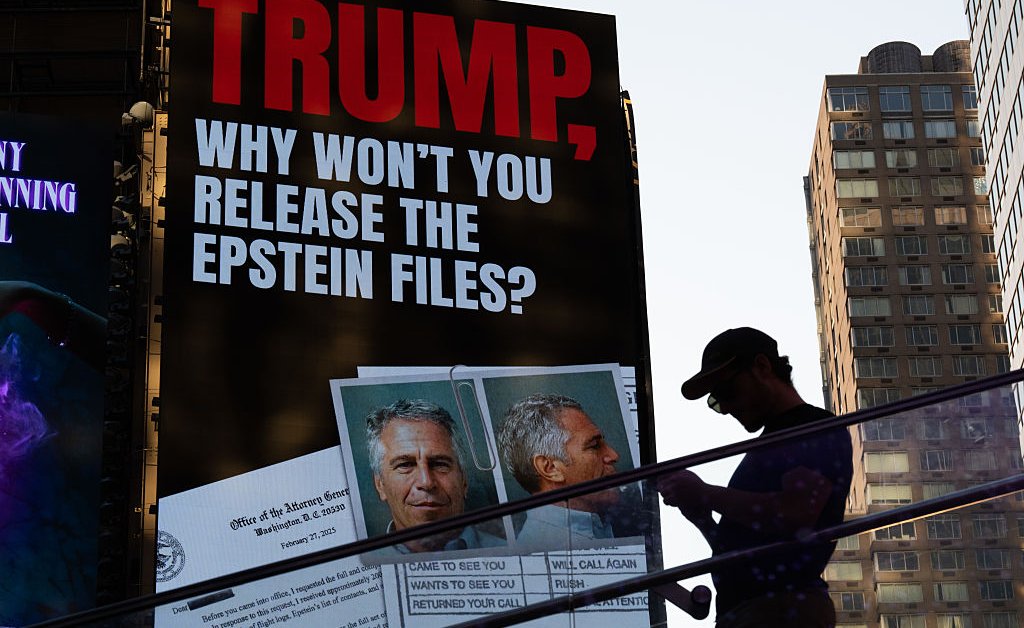The Jeffrey Epstein scandal has shut down Congress, triggered a revolt among Republicans, and left President Donald Trump grasping for distractions.
But even though demands for the President to release the full, un-edited Epstein files grow louder by the day, no one is demanding that the survivors Epstein trafficked come forward. This admission reflects a new era of the #MeToo movement—and remarkable shift in who we believe as a society bears the responsibility for addressing the aftermath of sexual violence.
It is as though our society has finally conceded, at long last, that it is incredibly difficult to speak up about sexual misconduct. That understanding, in and of itself, signifies progress.
Epstein allegedly trafficked dozens of young girls over the years. When former U.S. Attorney and Trump Labor Secretary Alex Acosta controversially gave Epstein a non-prosecution agreement in 2007, the deal also extended to “any unnamed co-conspirators.” To this day, we still do not know who they are and the Department of Justice refuses to say. But it is very likely that the survivors recognize the high-profile men to whom they were trafficked.
For some, this might beg what seems, at first glance, an obvious question: Where are the survivors? And why have they not come forward to tell us who is on the list?
But in fact there are a number of reasons why victims of such crimes might choose not to come forward, all of which speak to the challenges women face when they speak out about abuse. First, it is terrifying to take on powerful people in the full glare of the spotlight. We should know. Nearly a decade ago, we filed lawsuits against Fox News and its then-chairman and CEO Roger Ailes. At the time, Ailes was the most powerful man in media and one of the most powerful men in the world.
We were each put through the wringer, becoming avatars for those who wanted to weaponize our stories for their own ends. Coming forward had a personal toll that went beyond a cost to our careers. It was lonely to be in the center of a maelstrom. The lives we built suddenly became off-kilter. We felt like strangers to ourselves, even as we followed the same daily routines. Many of our family and friends sympathized with us—but couldn’t completely understand.
We were both adults when we filed our lawsuits, each with successful careers, stable personal lives, and considerable privilege. Even for us, the balance of power between ourselves and the people we accused of wrongdoing was a gaping chasm. How much worse is it for survivors who were trafficked as young girls to wealthy middle-aged men, some of whom likely were and continue to be immensely powerful?
For once, it feels like society knows the answer to that question, which may be why no one is asking survivors to come forward at this moment.
This progress is due, in part, to the many survivors who have bravely shared their stories over the past several years, including talking about why it is so hard to do so.
Despite these difficulties, there is incredible power in telling one’s story. As much as coming forward cost us in some ways, it was also the bravest thing we’ve ever done, and we’d do it all over again if given the choice. For every cowardly troll who tried to bully us, there were dozens of friends, family, colleagues, and complete strangers who reached out to show their support and share their own experiences. It was overwhelming and beautiful. There is nothing like the freedom and peace that comes with speaking up.
Today, there are many courageous organizations and individuals doing transformative work to help survivors seek justice, speak their truths, and ultimately change how people think about these issues. This is why we are committed to eradicating the silencing mechanisms that protect predators at the expense of survivors, including the non-disclosure agreements that some of these survivors may have signed when they were younger. We helped get two landmark federal laws passed that give survivors more protections to speak up at work.
Some have downplayed the impact of the #MeToo movement and questioned its impact. But the shift in public discourse around the Epstein case shows the subtle but profound way our culture has changed. Today, the pressure is rightly placed on those in power—those who enabled abuse or participated in it—and not on the survivors. That is real progress. We have so much more work to do, but let’s also acknowledge this progress as well.
The decision to speak about trauma is personal, and every survivor deserves to make that choice on her own terms. To the women and girls abused by Jeffrey Epstein: you owe nothing to anyone. But you deserve a world that believes you, supports you, and protects you. And there is an army of people who will continue working to build that world with you.
Read the full article here


